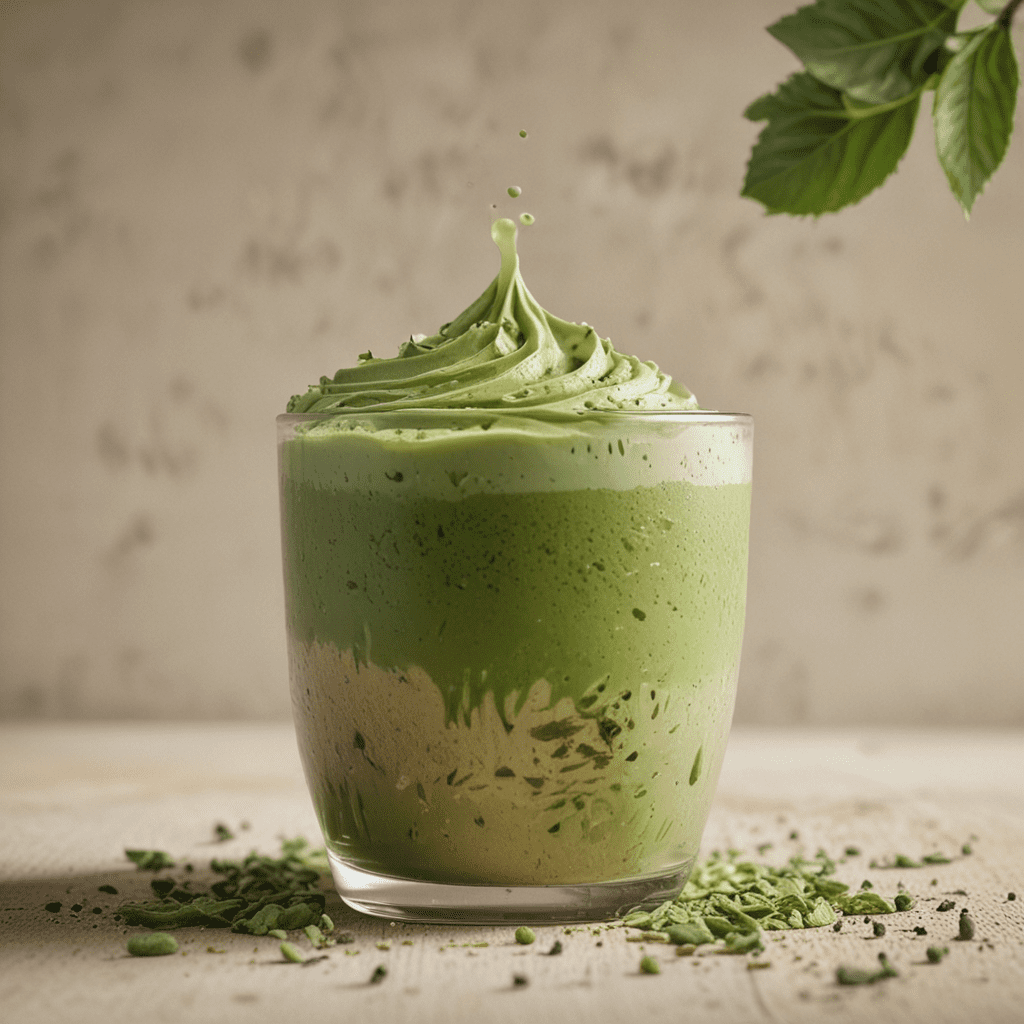
Matcha and Brain Health: Green Tea’s Cognitive Benefits
1. Introduction
Long revered for its remarkable health properties, matcha has emerged as a potent ally for cognitive well-being. This vibrant green tea is meticulously processed and contains an array of bioactive compounds that exert profound effects on brain function.
2. Matcha: What is it and Why is it Special?
Matcha is a finely ground powder made from whole green tea leaves. Unlike regular green tea, where only the steeped liquid is consumed, matcha incorporates the entire leaf, resulting in a concentrated source of nutrients and antioxidants.
3. The Polyphenols in Matcha
The key to matcha's cognitive benefits lies in its abundance of polyphenols, particularly a catechin called epigallocatechin gallate (EGCG). This powerful antioxidant protects brain cells from damage and enhances their function.
4. Matcha and Cognitive Function
Studies have shown that matcha consumption boosts cognitive performance. One study revealed that participants who ingested matcha performed better on working memory and attention tasks compared to those consuming a placebo.
5. Matcha’s Role in Memory and Attention
Matcha's ability to improve memory and attention is attributed to its stimulation of neurotransmitters like dopamine and norepinephrine, which enhance focus and information processing. Caffeine, also found in matcha, contributes to increased alertness and reduces fatigue.
6. Matcha’s Benefits for Mood and Stress
Matcha's calming effects are mediated by its amino acid, L-theanine. L-theanine promotes relaxation without drowsiness, enhancing focus and reducing stress levels.
7. Matcha and Neuroprotection
The antioxidants in matcha protect brain cells from oxidative damage, a major contributor to age-related cognitive decline. Matcha's anti-inflammatory properties further bolster its neuroprotective effects.
8. Matcha and Alzheimer’s Disease
Preclinical studies suggest that matcha may hold promise in preventing or slowing Alzheimer's disease. Its ability to reduce oxidative stress, inflammation, and neurotoxicity may mitigate the progression of this debilitating disorder.
9. Matcha and Parkinson’s Disease
Matcha's neuroprotective properties may also extend to Parkinson's disease. Its ability to protect against oxidative damage and neuron death may delay the onset or progression of this neurodegenerative condition.
10. Conclusion
Matcha's remarkable cognitive benefits, stemming from its abundance of polyphenols and other bioactive compounds, solidify its place as a powerful ally for brain health. From boosting memory and attention to protecting against neurodegenerative diseases, matcha's potential to promote cognitive well-being is undeniable.
FAQs
Is matcha safe to consume daily?
Yes, moderate consumption of matcha is generally considered safe. However, individuals with certain medical conditions should consult with a healthcare professional before regular use.
How much matcha should I consume?
Recommended daily intake varies, but most experts suggest limiting consumption to 2-3 servings per day.
Can I take matcha supplements?
Matcha supplements are available, but it's important to choose high-quality products and consult with a healthcare professional before use.

